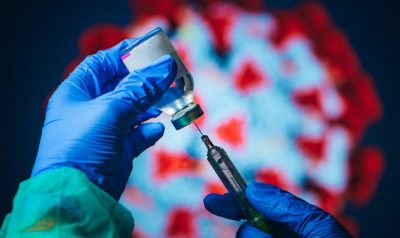Israeli Researchers: ‘Rare Autoimmune Disease’ Linked to Pfizer COVID-19 Vaccine
"The accumulation of cases did not fit. It was not what we would expect to see in a normal year."

All Global Research articles can be read in 51 languages by activating the “Translate Website” drop down menu on the top banner of our home page (Desktop version).
Visit and follow us on Instagram at @crg_globalresearch.
***
We bring to the attention of our readers this report by Israel National News which is based on the research of prominent Israeli scientists.
***
Israeli researchers this week pointed to a link between the Pfizer Covid-19 vaccine and a “rare autoimmune disease.”
The researchers, associated with the Department of Hematology at the Shamir Medical Center, found an increased incidence of acquired Thrombotic Thrombocytopenic Purpura (aTTP) in Israel over a one-month period, and noted that the cases appeared in those who had received the Pfizer vaccine up to a month before.
Researcher Dorit Blickstein explained to Channel 13 that TTP is
“a disease which, in its classic form, is deadly – 90% of those sick would die. Today, with the help of new treatments, which […] must be administered as quickly as possible, most patients recover.”
She said the researchers investigated a possible connection to the vaccine after seeing an increased concentration of cases of aTTP in Israel. They had noticed 4 cases in a month, while there are typically 2-3 cases a year.
“In Israel, there are two or three cases a year in any hospital. In March, we started to receive too many cases, and so we asked why.
“We essentially finished the yearly amount in one month, and that’s not logical. So we started to ask what all the patients had in common. And it turned out that all of them had received the coronavirus vaccine that is accepted and exists in Israel within a timetable of 5 to 28 days.”
“This caused us to suspect there was an association, some sort of connection, between this super-rare disease and the vaccine.”
She noted that most patients with the disease are young and that, in their study as well, the ages ranged between 28 and 45. Half were men, half women.
“In any event, it arouses attention, because the accumulation, the concentration did not fit. It is not what we expect to see in a normal year.”
Blickstein added that “with the help of the serological tests,” the researchers knew that “the patients were not patients sick with coronavirus, but rather patients who received the vaccine.”
“This was a red flag for us.”
She said there must be a red flag for “healthy people who received the vaccine and start to develop phenomena like a tendency to internal bleeding or, Heaven forbid, headaches, dizziness, loss of words, chest pressure or stomach aches,” in which case they should “call for medical assistance immediately.”
“It could be that they are not regular vaccine phenomena, but an expression of a rare disease.”
Blickstein finally noted that the incidence is “not only in Israel. There is, at the moment, a report of an identical response to the same vaccine in Belgium and Italy.”
The US National Library of Medicine defines TTP as “a rare disorder that causes blood clots (thrombi) to form in small blood vessels throughout the body. These clots can cause serious medical problems if they block vessels and restrict blood flow to organs such as the brain, kidneys, and heart.”
“Complications resulting from these clots can include neurological problems (such as personality changes, headaches, confusion, and slurred speech), fever, abnormal kidney function, abdominal pain, and heart problems.”
A report released by the Health Ministry at the beginning of June concluded that hundreds of cases of heart muscle inflammation (myocarditis) were probably caused by the coronavirus vaccine administered as part of Israel’s mass vaccination campaign.
The vast majority of cases were reported among young men and teenage boys. Most of the cases were reported among males ages 16 to 30, with the highest proportion found among male teens aged 16-19. Ninety percent of all the myocarditis cases linked to the vaccine were reported in males.
*
Note to readers: Please click the share buttons above or below. Follow us on Instagram, @crg_globalresearch. Forward this article to your email lists. Crosspost on your blog site, internet forums. etc.
Featured image is from iStock





No comments:
Post a Comment